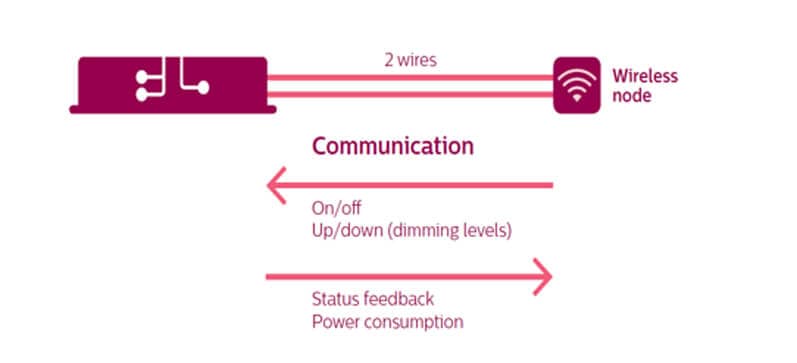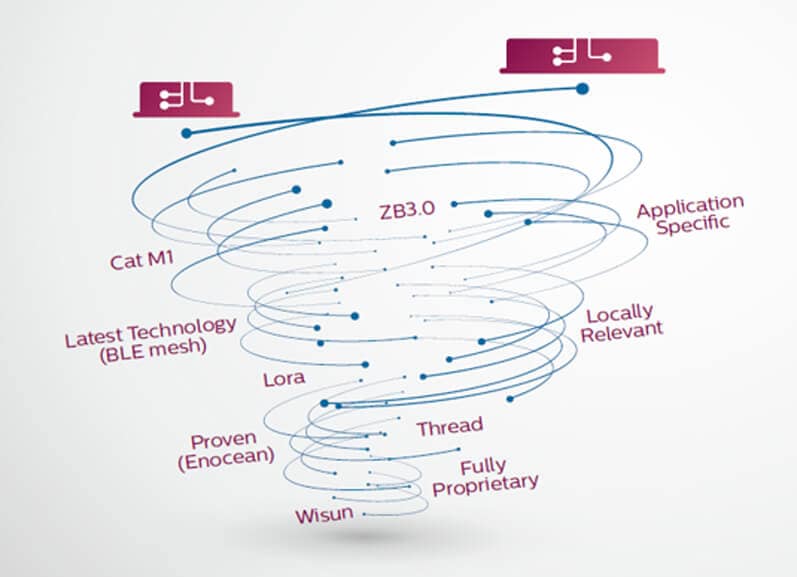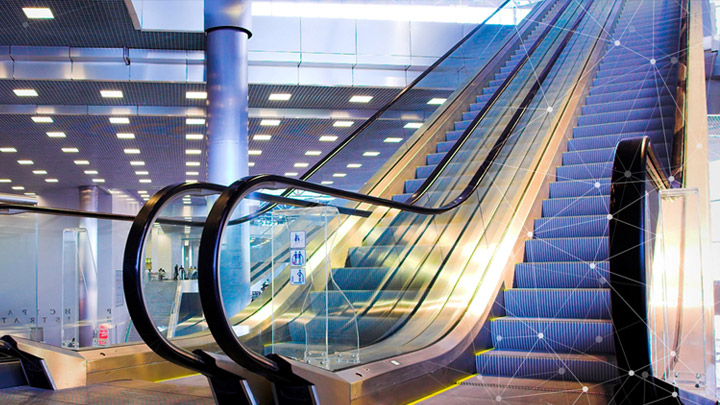We all know that lighting can be adjusted in many ways – from daylight dimming to task tuning via manual or scheduled controls. But while it’s useful to match lighting to different personal preferences, it’s even more useful to understand how different settings create energy savings, especially when lighting accounts for as much as 18% of a building’s energy consumption1.
1 Source: https://constructioninformer.com/let-occupants-lower-commercial-building-lighting-costs/
Fortunately, it’s now possible to obtain these valuable insights through wireless lighting controls. This emerging technology is helping customers uncover their consumption patterns for the first time in order to establish more sustainable uses of energy and realize substantial savings.
How can lights be controlled wirelessly?
Connected lighting is all about two-way data communications: Wireless lighting controls with bidirectional connectivity can both send and receive data from luminaires.
When combined with lighting management software, connected lighting systems enable people to see the current state of each lightpoint, and to act on lightpoints individually or in groups to monitor, manage, and maintain lighting systems in real time.

What about all the different wireless protocols?
To simplify things for everyone, rather than creating yet another custom interface, Signify has pioneered a standard protocol between the LED driver and the wireless controller. This eliminates the need for specialized devices, connections or connectivity, while providing full support for today’s wireless protocols.
With Advance Xitanium SR (sensor-ready) LED drivers, fixture manufacturers can create new luminaires with confidence that their products will reliably connect to sensors and the Internet of Things, bringing forward more sustainable, smart lighting to the planet.


Global Product Manager
Signify

Every light a Bluetooth beacon
Bluetooth technology embedded in light fixtures will spark massive adoption of smart lighting, enabling rapid setup using a smartphone app.

Sensor-Ready (SR) driving the (r)evolution of DALI into the IoT
Learn how DALI evolved into the new SR interface to provide a wireless-enabled infrastructure for the IoT.

What does smart lighting mean for the future of emergency lighting?
Emergency lighting systems for commercial buildings typically do not get the attention they deserve.